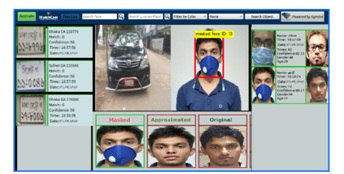As more Americans use video conferencing software to connect with coworkers, friends and family during the COVID-19 pandemic, one of the most popular platforms, Zoom, has faced several complaints from customers who have had their conferences “hijacked” by hackers.
The practice, also referred to as “Zoombombing,” has happened with several virtual classrooms and workplace meetings that did not have password protections for the meeting room and had their meeting room links available online.
The FBI’s Boston office has issued a warning about the potential for hijacking after receiving several reports of “conferences being disrupted by pornographic and/or hate images and threatening language.” One school in Massachusetts reported an incident where an unidentified individual dialed into the classroom, yelled a profanity and shared the teacher’s home address in the middle of the meeting. Another teacher reported that an unidentified individual appeared in their Zoom meeting room with visible swastika tattoos.
“As individuals continue the transition to online lessons and meetings, the FBI recommends exercising due diligence and caution in your cybersecurity effort,” the warning reads. In a press statement, Zoom has said that it takes the security of its software seriously and that employees are “deeply upset” to hear about these types of attacks.
“For those hosting large, public group meetings, we strongly encourage hosts to review their settings and confirm that only the host can share their screen,” the company, which has faced criticism for cybersecurity issues in the past, said. “For those hosting private meetings, password protections are on by default and we recommend that users keep those protections on to prevent uninvited users from joining.”
The questions around Zoom’s cybersecurity practices and use of personal data have been escalated by Sen. Richard Blumenthal. The senator sent a letter to Zoom CEO Eric Yuan to seek information on Zoom’s protections against security threats and “abuse” of its services.
In the meantime, users can report incidents of Zoombombing to the company so staff can take “appropriate action,” the company said. Victims of teleconference hijacking or any cyber crime can report it to the FBI’s Internet Crime Complaint Center. The FBI offered other tips on preventing Zoombombing, including not sharing links to meeting rooms on unrestricted social media posts where trolls and hackers can find them.








